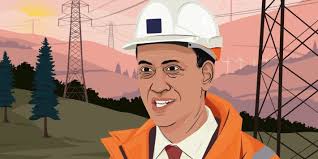Shell planning to exit South Africa: reports

Two reports by the City Press and the Sunday Times say that petrochemical giant Shell is planning to exit South Africa.
According to the reports, citing sources tied to Shell’s BEE partner in South Africa, Thebe Investments, the global group will divest its 72% stake in Shell Downstream South Africa.
This has led to conflict with Thebe over the value of its remaining 28% stake in the company.
The company and the department did not comment on the move, telling both papers that they do not comment on speculation, and that engagements with shareholders are confidential.
Investors turn sour
Shell has over 600 forecourts in South Africa and has been granted exploring rights by the Department of Mineral Resources and Energy. It has been operating in South Africa for over a century and is an iconic brand among motorists.
Shell’s reported exit comes as other major global brands and companies tied to foundational industries in the country raise doubts about the viability and prospects of investment in South Africa.
Most recently, mining giant BHP put in a $39 billion bid for Anglo American – but this deal would have shirked assets in South Africa, which commentators said was an indictment on the country and governance in the country.
BHP responded to the resultant uproar by deploying a senior team, including its chief executive officer, to South Africa to win over government officials, regulators and local shareholders.
It also issued a statement on Thursday emphasising that its proposal was not an indictment of the country.
“The proposed structure does not reflect a view of South Africa as an investment destination and is based on portfolio and commodity considerations,” the company said.
At the end of 2023, CEO of Volkswagen (VW) Passenger Cars, Thomas Schaefer warned that South Africa is becoming an undesirable location for manufacturing cars – especially amid the global shift toward EVs – due to issues such as load-shedding, rising labour costs, and problems with Transnet.
Speaking to Reuters, Schafer said at the time that while South Africa was a competitive player in global car manufacturing due to its low labour costs, it was losing this edge rapidly due to poor governance and sluggish regulatory reforms.
As was the case with BHP, the CEO’s statements were soon followed by assurances from the local arm of the group that it was not leaving South Africa, and that it remains a destination for investment.
In April 2024, VW announced that it would invest R4 billion into its manufacturing plant in Kariega, Eastern Cape.
The investment will be used to upgrade facilities in preparation for the addition of a third model to its production line in 2027.
While data shows that South Africa is struggling to attract foreign investment due to its myriad issues—largely down to infrastructure, power, and logistics—and investors are sour on the government’s policies, research by PwC indicates that this negative may be overstated.
The group said that foreign investors are still largely positive about South Africa’s world-class financial services and communication industries, deep capital market, strong tertiary institutions, natural resources, geographical location, and a certain level of political and policy stability.
As a result, the nation has seen net FDI inflows (inflows minus outflows) almost every year since the global financial crisis.
Read: SAA wants investors on board – but government in the cockpit


 United Kingdom
United Kingdom Argentina
Argentina  Australia
Australia  Austria
Austria  Brazil
Brazil  Canada
Canada  Germany
Germany  Ireland
Ireland  Italy
Italy  Malaysia
Malaysia  Mexico
Mexico  New Zealand
New Zealand  Poland
Poland  South Africa
South Africa  United States
United States 
























